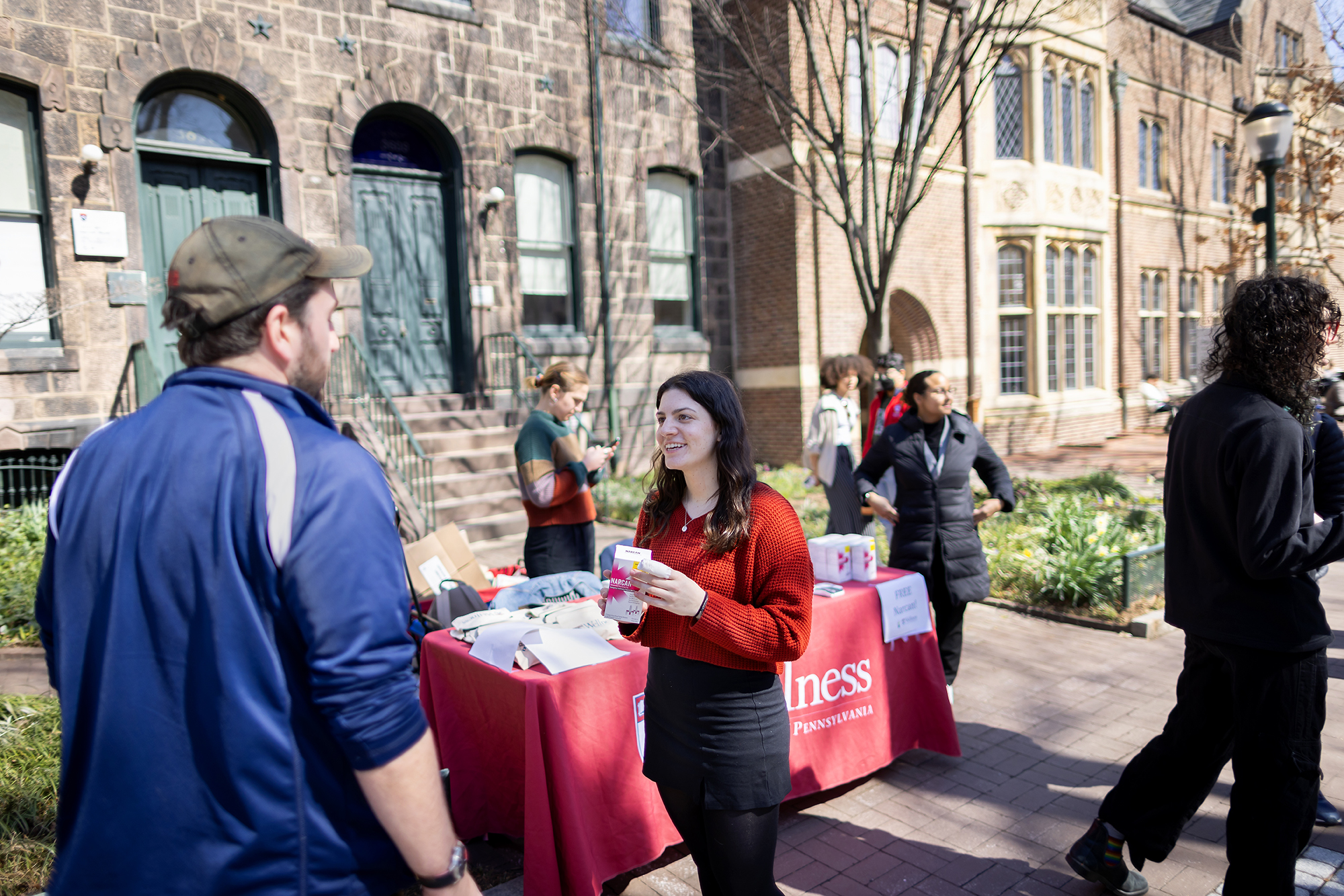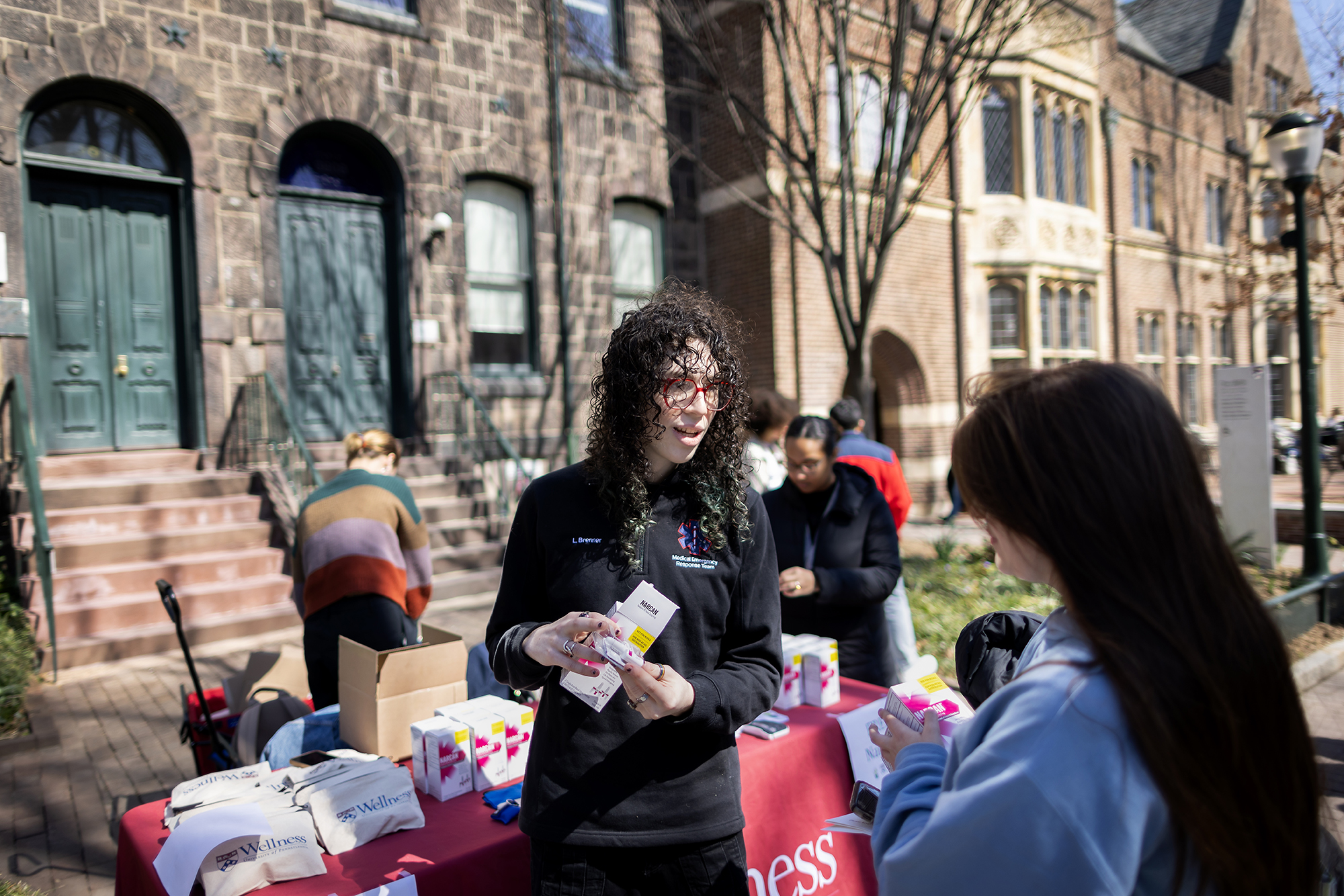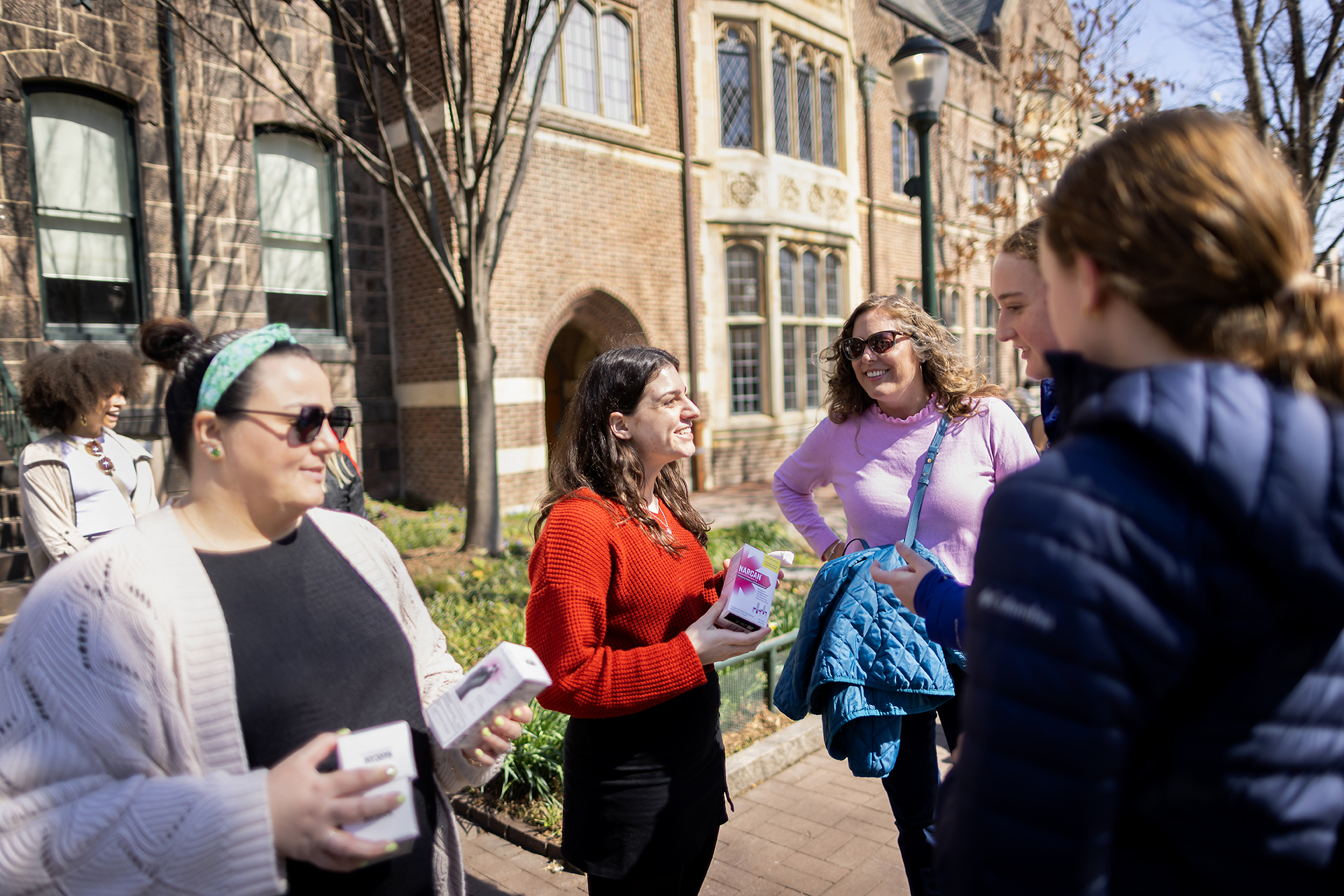
According to the Centers for Disease Control and Prevention, more than 150 people in the United States die every day from overdoses related to synthetic opioids like fentanyl. The lifesaving drug Naloxone, marketed under the brand name Narcan, quickly reverses an overdose and can restore normal breathing in two to three minutes.
Last week, Wellness at Penn partnered with the student-run Medical Emergency Response Team (MERT) for a Narcan giveaway and training on Locust Walk. Trainor Macrone, a substance use specialist at Wellness at Penn’s Substance Use, Prevention, Education, and Recovery (SUPER) Program, says about 120 students, faculty, and staff received training on how to recognize an overdose, respond to it, and administer Narcan. SUPER and MERT staffers also handed out 120 doses of Narcan.
“A lot of [SUPER’s] media and education is really highlighting the dangers of synthetic opioids and the risks of it being laced into other substances, so I do think that students realize and recognize the importance, and Narcan is something that they at least want on their person,” she says.
Macrone says people who stopped by the table were grateful to see Narcan training and use normalized and destigmatized and handed out broadly on campus. She adds, SUPER hopes to hold another event the week before Spring Fling and to make the trainings a regular occurrence.









